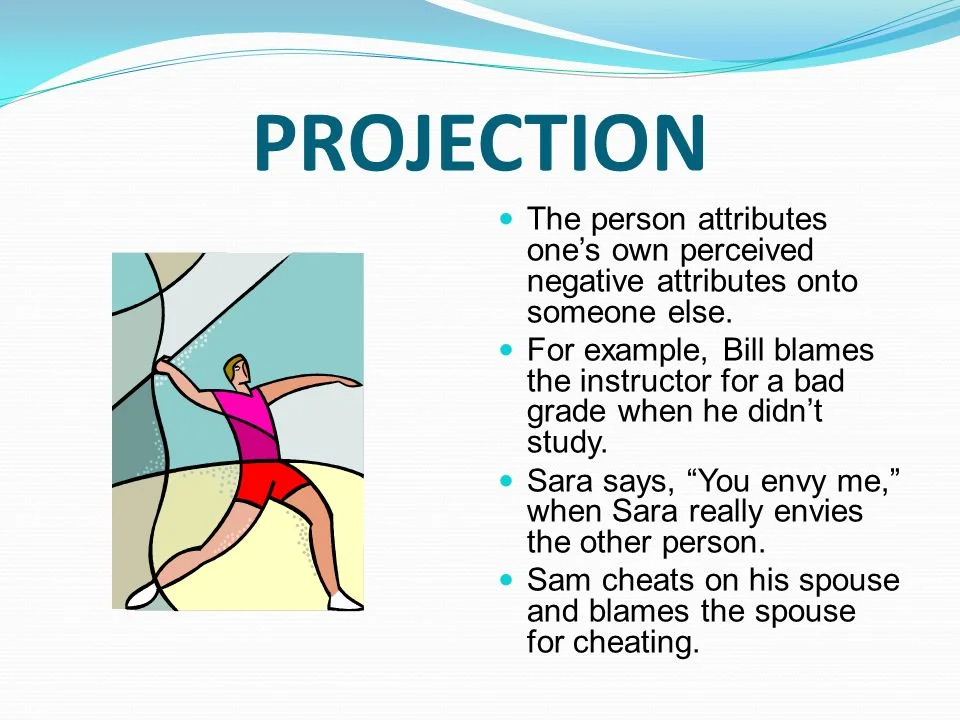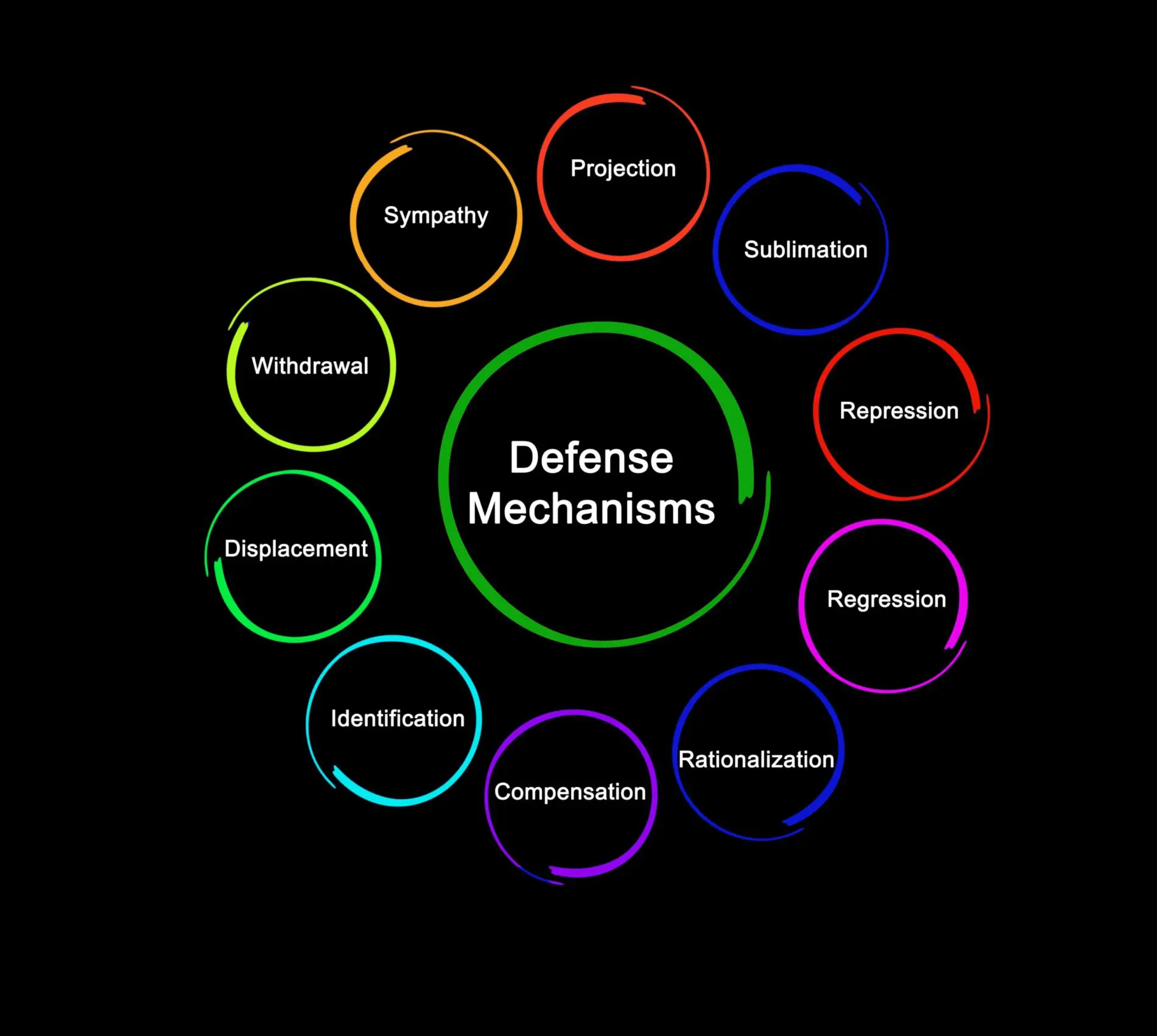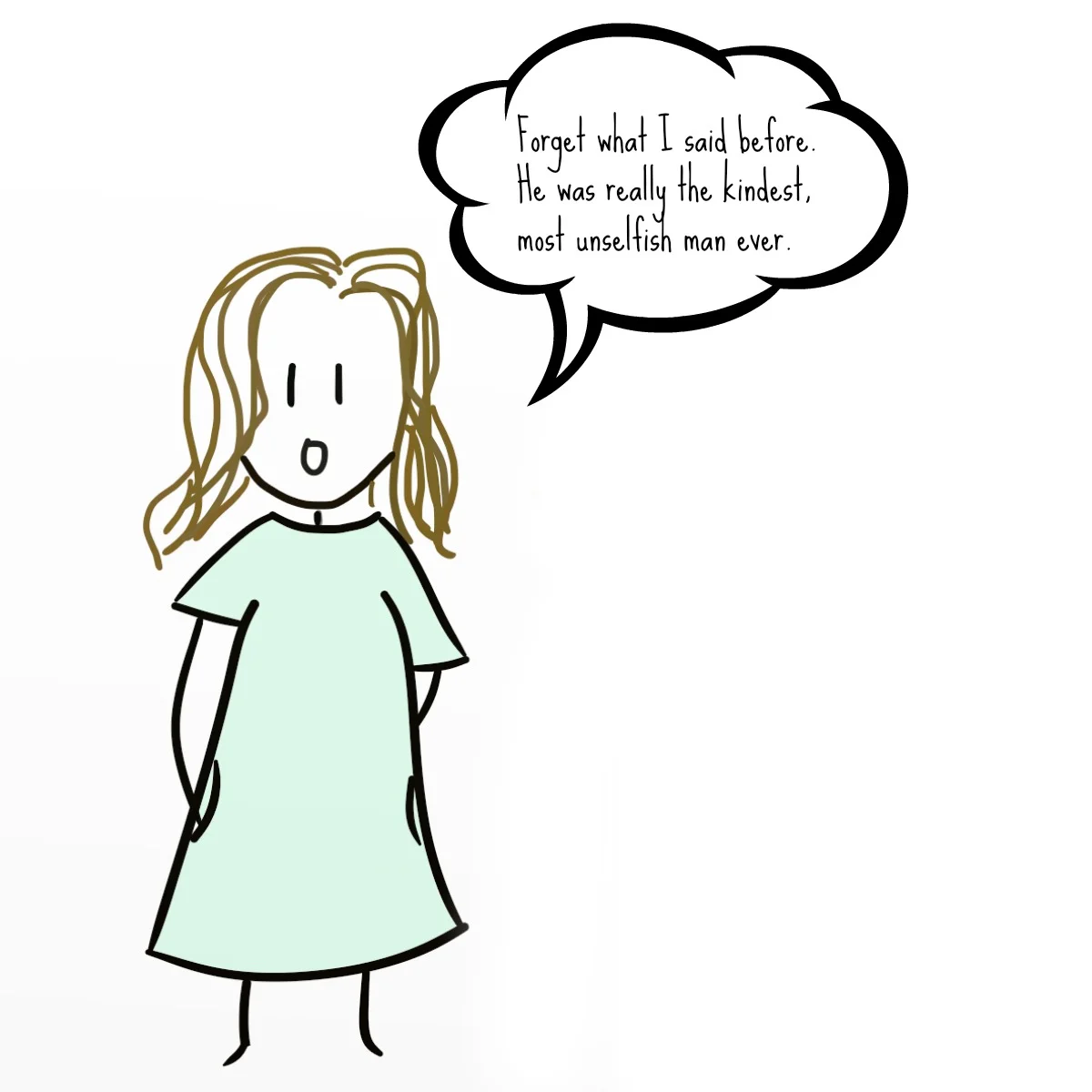The reasons why someone might employ projection as a means of defending themselves can vary drastically from person to person. In this blog post, we will explore what projection is, the different types of projection there are, projection defense mechanism example (examples), and the unavoidable mental health concerns.
Contents
Understanding Projection

Projection can be defined as a psychological defense mechanism whereby an individual discharges their undesirable thoughts, feelings, or attributes onto another person.
In other words, projection is the act of attributing one’s unacceptable qualities to someone else. This often allows the projector to maintain a positive self-image and avoid taking personal responsibility for their actions.
Projection is frequently used unconsciously. A projector will most certainly deny the fact that they are projecting, and it can be extremely difficult to convince someone who has employed projection as a defense mechanism of their behavior.
The Different Types Of Projection

There are several different types of projection people commonly use when dealing with mental health concerns or interpersonal issues. Two of the most common forms of projection include:
Projection onto others
This occurs when a projector accuses another person of having qualities that they possess, such as blaming someone else for being angry or irritable when their feelings stem from them; projecting responsibility can also take place in cases where an individual blames someone else for their own mistakes or shortcomings.
Projection onto the environment
In this form of projection, a person will externalize their problems and issues by blaming the world around them for their difficulties. For instance, they may claim that everything is going wrong because of someone or something else. This type of projection is often used as a way to avoid taking responsibility for one’s actions and behaviors.
Projection Defense Mechanism Example

In a High School Setting

Imagine for a moment that you are a student attending high school. You have been working hard all year and studying for your upcoming final exams. However, the night before your first final, you start to feel anxious and overwhelmed. You begin to worry that you won’t do well on the test and that you will let down your classmates and teachers.
In this situation, you would likely resort to projection to deal with your anxiety. In other words, you might convince yourself that everyone else is feeling just as anxious and overwhelmed as you are. This would help to ease your anxiety, as it would take the focus off of you and place it onto others.
In a Romantic Relationship

When two people are in a romantic relationship, it is not uncommon for one person to project onto the other. For instance, a partner may accuse their significant other of being unfaithful or dishonest when they have never been anything but truthful and loyal. This can be incredibly damaging to the relationship, as it often leads to a great deal of mistrust and suspicion.
In this situation, the one who is projecting their negative behaviors onto their partner may be doing so to avoid looking at themselves or taking responsibility for how they have hurt someone else. This can take place when an individual feels guilty about cheating on their significant other, for example.
In Workplace Settings

It is not uncommon for people to project their feelings and emotions onto their coworkers in the workplace. For instance, a person may become angry and irritable with their co-workers because they are feeling overwhelmed and stressed at home. Alternatively, a person may take out their frustrations with their boss on other employees.
In either case, projection can hurt both the work environment and interpersonal relationships, as it often results in feelings of blame and hurt. It may also lead to hostility between coworkers or employees who otherwise have an amicable relationship with one another.
A Parent’s Perspective

Imagine that you are a parent and your teenage child has recently been suspended from school for fighting with another student.
You want to talk about the situation, but they refuse and insist that you are just being unfair.
In this case, your teen would likely be projecting their feelings onto you to avoid taking responsibility for their behavior.
A Siblings Perspective
Siblings can often be a target for projection, especially when they are close in age. For instance, if one sibling is doing well in school and the other is struggling, the sibling who is struggling may project their feelings of inadequacy onto their brother or sister. This can lead to a great deal of tension and resentment within the family.
Dangers Of Projection As A Defense Mechanism

Projection can be a very powerful defense mechanism, and it is important to be aware of the dangers that can come with its use. While projection can help an individual to avoid taking personal responsibility for their actions, it can also lead to some serious mental health concerns.
When the projection is used as a defense mechanism, it can often result in:
- Looming feelings of guilt and shame
- Self-alienation (a person may become alienated from themselves because they perceive their actions as being separate from them)
- Impaired interpersonal relationships, and more
Projection, And Mental Health Concerns

When an individual uses projection as a defense mechanism, it can lead to mental health concerns. People who constantly blame others for their problems or difficulties may be dealing with low self-esteem or feelings of insecurity.
In addition to creating interpersonal issues with others in a person’s life, projection can also cause problems within an individual’s internal world. They may also feel insecure about other people’s relationships and friendships, leading to feelings of envy and jealousy.
It often leads to serious mental health concerns such as clinical depression. In some cases, projection can also be a sign of mental illness. For example, someone with paranoid schizophrenia may begin to believe that everyone is out to get them or that they are being watched constantly.
Conclusion

Projection can be a powerful tool that people use to protect themselves from difficult emotions or situations. However, it is important to be aware of the dangers that come with its use. As projection can often lead to impaired interpersonal relationships and mental health concerns. If you are struggling with projection as a defense mechanism, please seek professional help. For more information on this complex defense mechanism, read my extensive post on projection.
If you are looking for affordable Online Counseling MantraCare can help: Book a trial therapy session


